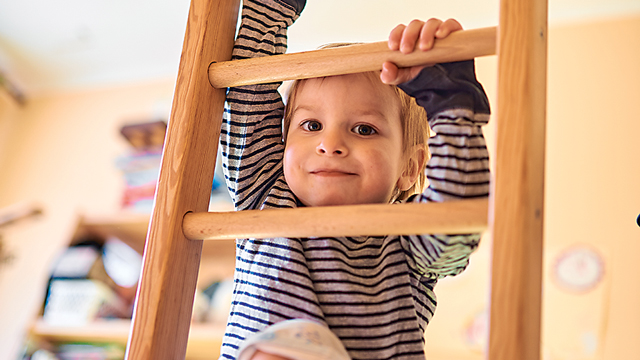The pandemic has created an environment of stress for us all and especially for our children. With schools closed, recreational activities postponed, and social isolation requiring virtual play dates, it’s been disorienting to say the least, and at times, frightening for children. With so many unprecedented factors in motion, it’s more important than ever to talk to your child and check in on how they’re feeling. One effective tool parents can use to connect with their kids and give them an opportunity to share their feelings is something almost everyone can do: play.
Play therapy is a therapeutic approach primarily used to help children ages three to twelve explore their feelings and express thoughts and emotions freely through play. Many organizations offer play therapy as a treatment for children who have witnessed or experienced trauma. Through toys, imagination, and role-playing, kids are able to express themselves and heal. While most parents and caregivers are not play therapists, they can still use play to help their child express their thoughts and feelings in everyday life. In addition, supporting children through play during these stressful times also leads to increased resilience.
Scheduling Play Time
One way parents can connect with their kids is to schedule a special play time with their child. This can be once a week or once a day or somewhere in between, for as little as twenty to thirty minutes. Parents should try to plan the time for when they know they can give uninterrupted attention to their child with little to no physical or mental distractions. Try incorporating new toys or toys your child typically doesn’t play with during the special time.
Parents can introduce the special play time by saying something like, “We are going to have special play time this week. During our play time, you and I will play together. You get to decide how you and I will play together.” For older children, you can designate a special time to play a favorite card or board game, but let the kids choose the activity.
If you can’t commit to a special play time each week, try to create moments to play and be silly with them. Let them see you having fun and modeling healthy ways of handling stress, especially during these high-anxiety times of social isolation.
Tips for Play Time
Now, it’s time to play. Get on your child’s level physically and remember, let your child lead during this special play time. Kids should choose what toys or other items to play with and how to play. If your child wants you to be the baby or wear a crazy hat or use a different voice, be silly with them and play that part. If you’re not sure what they want you to do, then ask.
Many times, children will express themselves symbolically through their toys. As a play therapist, I often use the phrase, “I wonder why…” to try to understand how children are feeling during play therapy. You can use “I wonder” statements to let your child know you are paying attention to their play and the emotions they are expressing. “I wonder why this guy is laughing?” or “I wonder why this turtle is alone?” Often if you wonder incorrectly during play, your child will correct you.
Get Outside
Fresh air is good for everyone. Get your kids moving and using their energy outside while following proper safety guidelines for physical distancing. You don’t need a big yard for this. Walk, run, or try out a neighborhood jungle gym or other safe structure while playing together.
You can take advantage of kid-friendly mindfulness exercises outdoors as well. Ask your children what they notice around them: How does the breeze feel? What does it smell like? You might pick a plant or a tree in your neighborhood and track how it changes over the season. This exercise helps kids observe changes and assists them with recognizing feelings. You could design a natural scavenger hunt for your yard or neighborhood.
Finally, while play can be a great way to bond with children and help them communicate, if you are concerned about your child’s mental well-being, please reach out to a mental health professional for advice.




